
An Inside Look at the Organic and Natural Beauty Space
While organic food is the focus of this newsletter, personal care products are an important and growing segment within the overall organic industry.
For those of us who are serious about eating organic, we are also using natural and organic body care products. And organic food companies are paying attention.
I know of one major organic food brand getting into this category, and I expect others to follow suit.
Last week in New York City, I attended Indie Beauty Expo, a showcase for independent natural/organic beauty brands. This was my third Indie Beauty Expo, and I remain incredibly impressed, by not only the brands in attendance but also how the entire operation is managed.
Here are my key takeaways:
* The innovation was excellent, and I saw many products and ingredients that I had never seen before. Several trends really stood out:
– Oils are not only replacing creams as facial moisturizers, but oils are also going to be used as both facial cleansers and deodorants.
– Food is entering personal care products in a very pronounced way. Fruits such as dates, plums and papayas now serve as prominent ingredients.
– CBD continues to show up in more balms and lotions, and I even saw it in a personal lubricant. Once there is more clarity from the federal government about the legality of CBD, absolutely everything will contain this ingredient.
* I was very surprised about how few certified organic brands there were at the show. Most likely, this was because young companies cannot afford the cost of certification. Or perhaps, they do not see it as a priority at this early stage of their business.
* There is still tremendous confusion about what is “clean”. “Natural” seems to get used far too loosely in the personal care market, all to the detriment of consumers.
* While many of the brands were unisex, a large number of companies presenting at the show were geared towards women. Not a huge surprise, but I think there is a real opportunity for more brands specifically marketed to men.
* The macro trends for the natural and organic personal care market are very favorable.
However, organic personal care products simply do not have the distribution similar to organic food. As such, companies do not see hockey-stick growth, as an organic beverage company might experience. It takes serious time, money and education.
When Walgreen’s and CVS start carrying a wide variety of natural and organic personal care products, the distribution challenge will no longer be as severe.
—
In case you haven’t seen them on Living Maxwell, here are My Top 5 Organic Products from Indie Beauty Expo 2017 in NYC.
And below are some more things from the show that I found compelling.
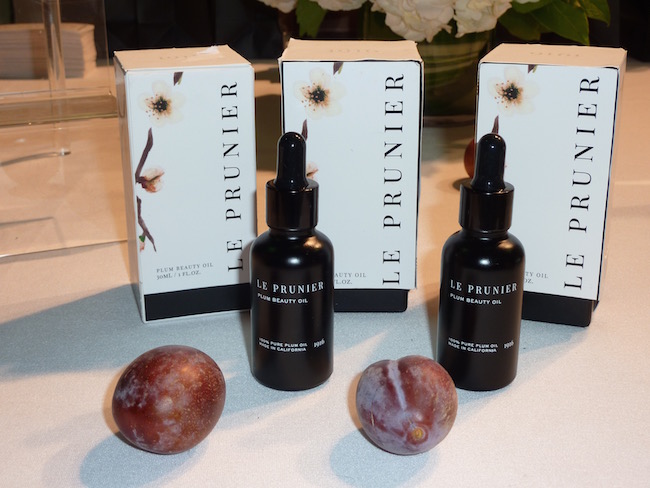
Grown on a 4th generation farm in California, Le Prunier beauty oil is made with organic plums. In terms of protecting the skin from damaging free radicals, the company says its plum oil is 8x more powerful than argan oil and 6x more powerful than marula oil.
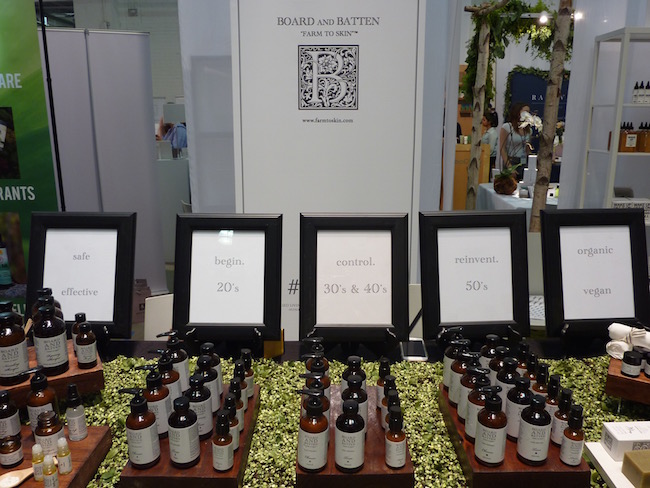
With everything organic and vegan, Board and Batten is an impressive brand out of Florida. I loved how it offered products for different age categories, and the company’s slogan “farm to skin” is pure gold. Also, the company has the best URL — https://farmtoskin.com.
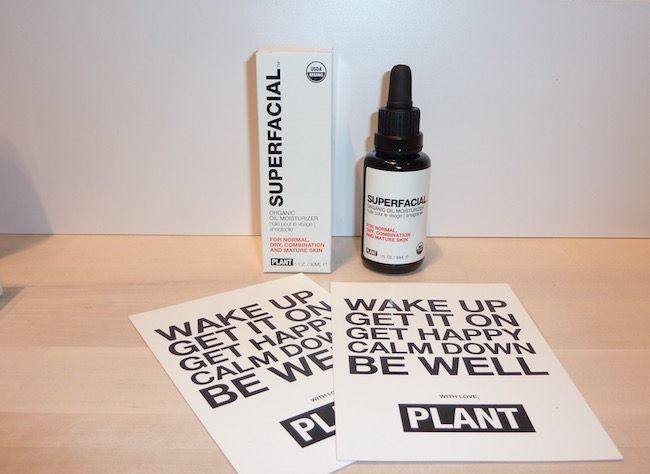
Plant Apothecary bills itself as an “organic apothecary with a conscience.” Its packaging and branding were phenomenal and also very gender neutral, making the product approachable for both men and women.

Founded by three sisters and based in France, l’ODAÏTÈS uses dates, which are very heavy in antioxidants. This was the first time I had seen dates in a personal care product. Fascinating.
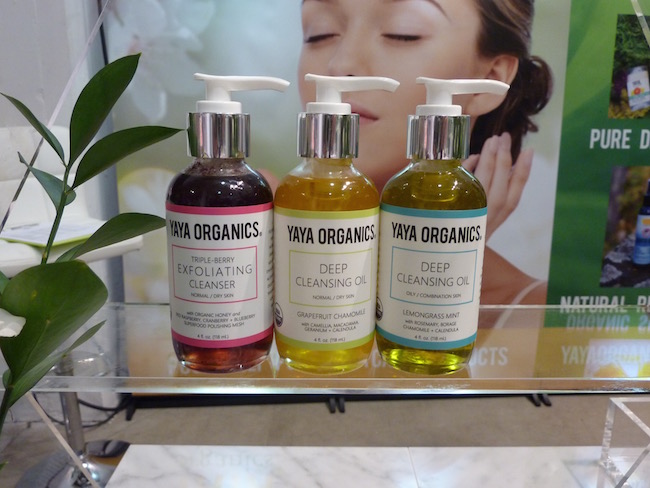
From Yaya Organics, a deep cleansing oil that “cleanses” instead of “moisturizes.” Can we say goodbye to facial soap?
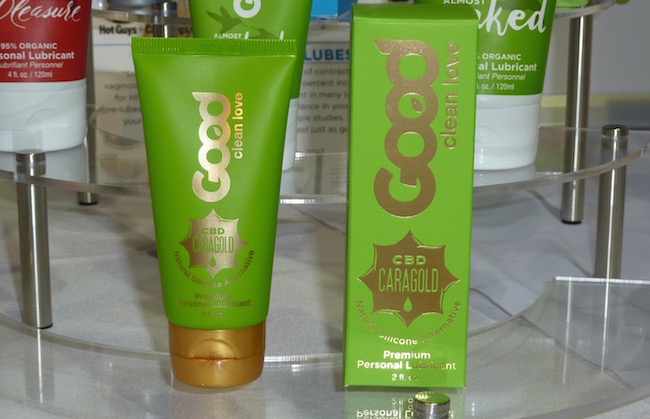
From Good Clean Love, a personal lubricant infused with organic CBD oil. Wow!
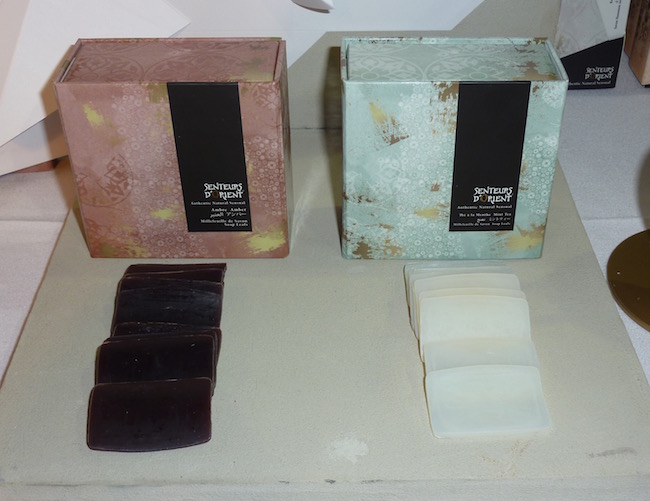
Have you ever wanted to travel with bars of soap but didn’t want to take the whole bar?
Senteurs d’Orient has solved that problem by creating tiny slivers of soap for each use. No more putting a wet bar of soap in your dopp kit. Very smart!
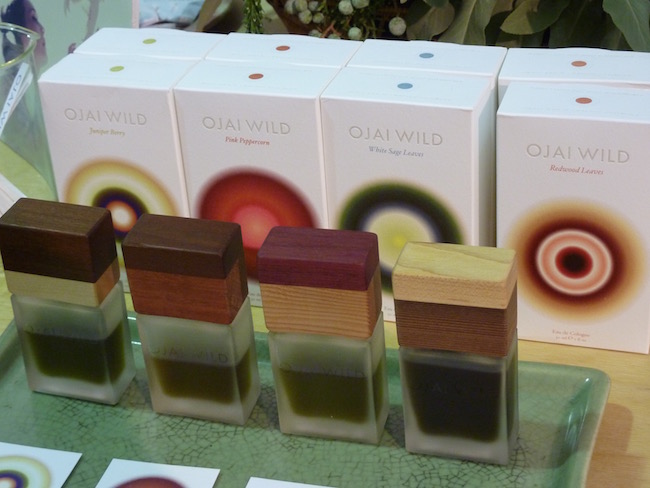
Beautiful packaging and ultra-clean natural fragrances from Ojai Wild. Along with organic botanicals and roots from the company’s farm in the Ojai Valley, other ingredients are ethically sourced from trees, shrubs and fields grown on established estates and ranches all around California.

My friend Melisse Gelula (on the right), Co-Founder and Chief Content Officer of Well+Good, leading a panel discussion on clean beauty trends.
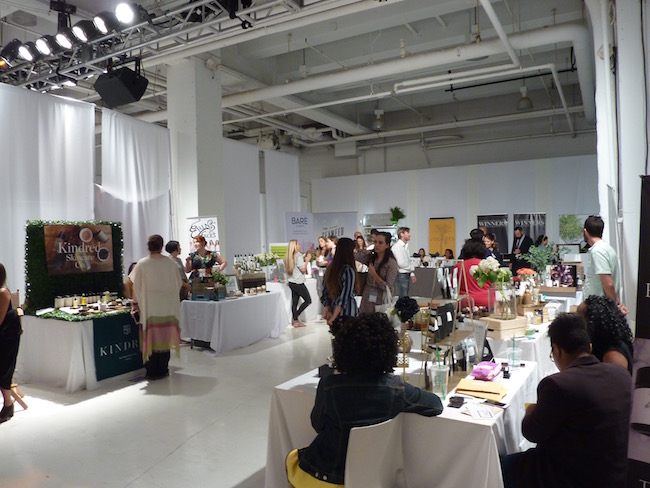
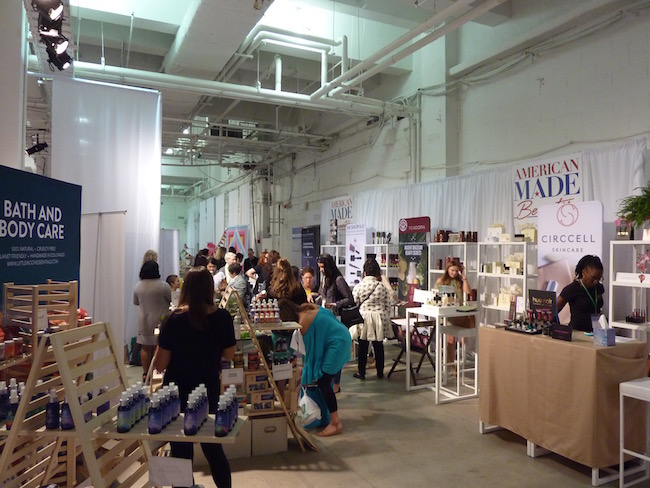


Indie Beauty Expo is a fantastic show. If you ever have the chance to attend, I strongly suggest it. The company puts on yearly events in New York City, Los Angeles, Dallas and London.
 |
Have a great day! 
Max Goldberg, Founder |
Quick Hits
* As we all know by now, Amazon’s deal to acquire Whole Foods closed on Monday, and the industry’s most important and iconic company will probably change in ways that many of us cannot imagine. It may, in fact, become quite unrecognizable in the years to come and be a complete shell of its former self.
* Three main things I’ll be keeping an eye on: what impact Amazon will have on organic standards; how small and medium-sized organic farmers will fare under an Amazon-owned Whole Foods; and when, not if, the company starts to finance organic farming operations. I believe it is a certainty that Amazon will soon be in the organic farming business, albeit indirectly.
* The Center for Food Safety (CFS) just sued the USDA over its failure to produce the feasibility study of QR codes. This was required by Congress as part of the GMO-labeling bill that it signed last year.
* Deloitte was hired to complete a study as to whether the QR codes — instead of on-packaging labeling — would be an acceptable alternative for consumers. Congress mandated that this study be completed by July 2017 and the public would have the opportunity to comment. Neither of these things happened.
* I spoke with George Kimbrell, Legal Director for the Center for Food Safety, who told me that it is unclear if the study was completed and never disclosed to the public, or whether the study was never completed at all.
* CFS believes that QR codes are completely discriminatory since nearly 100 million Americans do not have smartphones. I am in full agreement.
* As soon as more information about this study becomes available, I will let you know. Needless to say, its delay may very well impact the implementation of the GMO-labeling law, which is supposed to go into effect next summer.
* The Nordic Organic Food Fair will be taking place in Malmo, Sweden on November 15-16. If anyone is planning on going, please send me an e-mail.
Weekly News Summaries
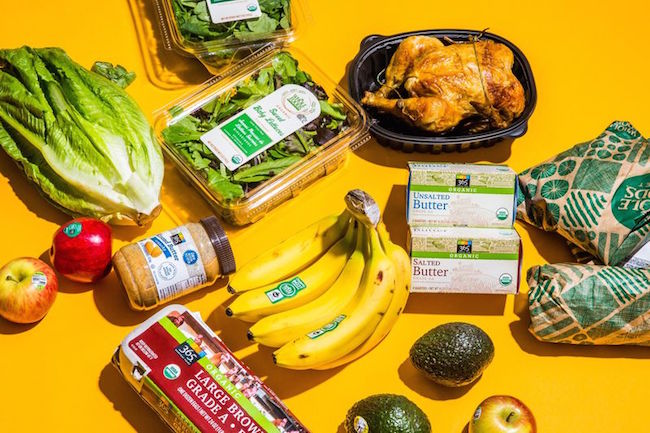
Amazon Wastes No Time, Cuts Prices at Whole Foods by up to 43%
By Jennifer Kaplan and Matthew Boyle
Whole Foods has slashed prices on some food items by up to 43%, with organic apples, organic avocados, and organic chicken as the big beneficiaries.

The USDA is Beginning to Address Organic Fraud, Cornucopia Submits its Own Ideas
By Aerin Einstein-Curtis
The USDA has told the National Organic Standards Board to make recommendations about ways to crack down on organic fraud. Meanwhile, the Cornucopia Institute has filed its own formal petition with ways to improve import scrutiny.

The Legendary Alice Waters Releases a Memoir
By Kim Severson
Alice Waters, who launched the farm-to-table movement in 1971 with Chez Panisse, has just written a memoir, which includes stories about sex, drugs and sustainable farming.

In Vermont, Organic Milk Prices are Plunging
By Eric Mansfield
A scary situation in Vermont where the price of organic milk continues to drop, making farmers very uneasy.

Organic Farming in Iowa is Booming
By Orlan Love
In Iowa, the demand for organic is so strong that the products are selling themselves.

As Organic Grows, Shoppers are Seeking More Value
By Elizabeth Crawford
With many more retailers selling organic and new direct-to-consumer channels, competition has brought the price of organic products down - something shoppers now expect.


Did the EPA Collude with Monsanto?
By Carey Gillam
Newly released FOIA documents show that numerous officials in the Environmental Protection Agency worked to slow a separate federal agency’s safety review of Monsanto’s top-selling herbicide, Roundup.
The Bayer-Monsanto Merger is Held Up in the EU
By Gaspard Sebag and Aoife White
The EU has decided to launch an investigation into whether the Monsanto-Bayer merger will reduce competition for pesticides, seeds and plant traits, and it has set a January 8th deadline to make a decision.
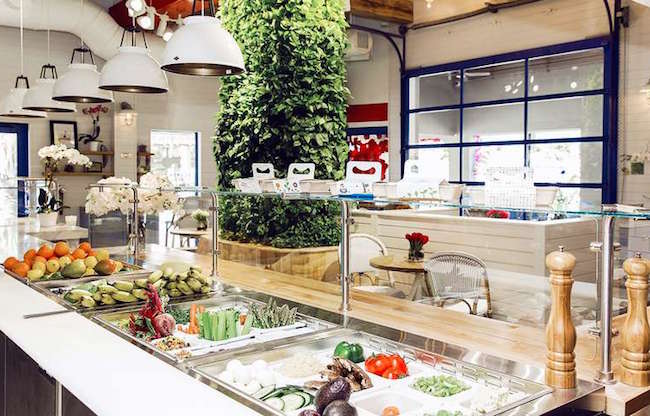

Walmart in Orlando Opens its Doors to an Organic Restaurant
By Melissa Locker
It's great to see that Walmart is shunning fast-food for Grown, an organic restaurant started by former NBA star Ray Allen.

Revive Kombucha Raises $7.5 Million
By Bill Swindell
The kombucha category continues to be on fire, as Peet’s Coffee & Tea led a $7.5 million financing for Revive. Blair Kellison, chief executive officer of Traditional Medicinals, also participated in the round.

Garden of Life and Actress Alicia Silverstone Launch a Certified Organic Gummy Vitamin
Hollywood actress Alicia Silverstone and Garden of Life have expanded their very successful vitamin line with the launch of a certified organic gummy vitamin, made from real organic fruit and organic vitamins.
The material in this newsletter is copyrighted and may be reprinted by permission only. All requests must be in writing. Please use our contact form to request republication rights.
Newsletter Archive
Quick Hits
* As we all know by now, Amazon’s deal to acquire Whole Foods closed on Monday, and the industry’s most important and iconic company will probably change in ways that many of us cannot imagine. It may, in fact, become quite unrecognizable in the years to come and be a complete shell of its former self.
* Three main things I’ll be keeping an eye on: what impact Amazon will have on organic standards; how small and medium-sized organic farmers will fare under an Amazon-owned Whole Foods; and when, not if, the company starts to finance organic farming operations. I believe it is a certainty that Amazon will soon be in the organic farming business, albeit indirectly.
* The Center for Food Safety (CFS) just sued the USDA over its failure to produce the feasibility study of QR codes. This was required by Congress as part of the GMO-labeling bill that it signed last year.
* Deloitte was hired to complete a study as to whether the QR codes — instead of on-packaging labeling — would be an acceptable alternative for consumers. Congress mandated that this study be completed by July 2017 and the public would have the opportunity to comment. Neither of these things happened.
* I spoke with George Kimbrell, Legal Director for the Center for Food Safety, who told me that it is unclear if the study was completed and never disclosed to the public, or whether the study was never completed at all.
* CFS believes that QR codes are completely discriminatory since nearly 100 million Americans do not have smartphones. I am in full agreement.
* As soon as more information about this study becomes available, I will let you know. Needless to say, its delay may very well impact the implementation of the GMO-labeling law, which is supposed to go into effect next summer.
* The Nordic Organic Food Fair will be taking place in Malmo, Sweden on November 15-16. If anyone is planning on going, please send me an e-mail.
